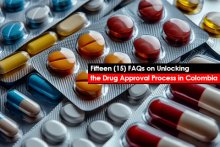Regulatory Operations
Submissions Publishing
In June 2010, The Medicines Control Council (MCC) announced the intention to implement the South African common technical document (ZA CTD) format which will replace the current MRF1 and any applications still in MBR1 format. From June 2011, submissions in ZA CTD format are mandatory (excluding veterinary medicines).
With the need for converting old format submissions to CTD format comes the opportunity for Market Authorization Holders (MAH) to plan and be ready for electronic submissions. Freyr can compile submissions in eCTD format and print in paper format as required by the current MCC requirement. This allows the MAHs to be prepared for future eCTD requirements from MCC and enables efficient electronic submission dossier management.
Registrations and Submissions Information Management
Module 1 (Administrative 1.10 Foreign Regulatory Status) requirement from Medicines Control Council’s (MCC) requires the applicant to provide a list of countries in which an application for the same product is being applied for in South Africa has been submitted, dates of submission (if available). This should detail approvals (with indications). Applicants must declare whether a marketing application for the medicine has been rejected in the countries listed under 1.10.1 prior to submission of the application in South Africa. If the medicine has been rejected, repeatedly deferred or withdrawn, then the MCC must be informed and the reasons supplied.
If no application has been submitted for registration in the country of origin, include a statement to provide the reason for this decision. It should be noted that aforementioned information is required to be provided in dossier however, it does not mean that this will help to speed up the review process.



